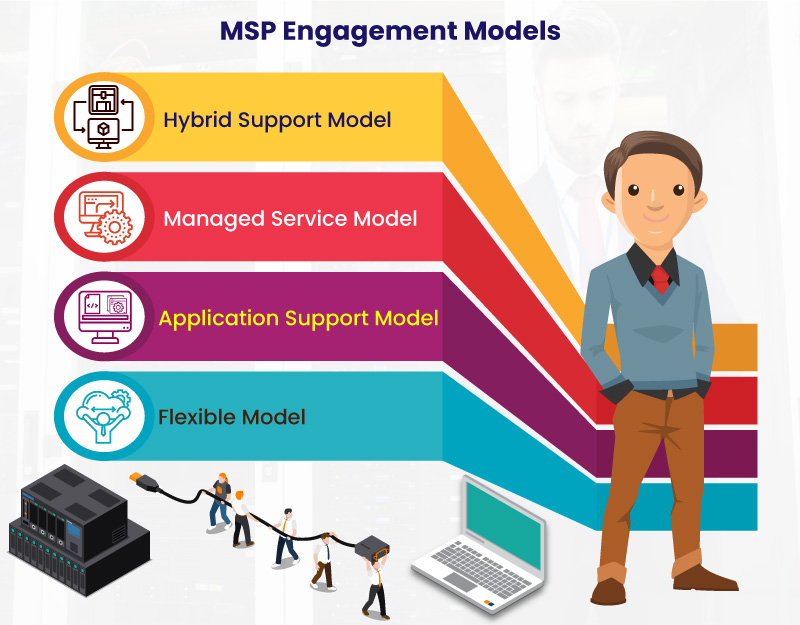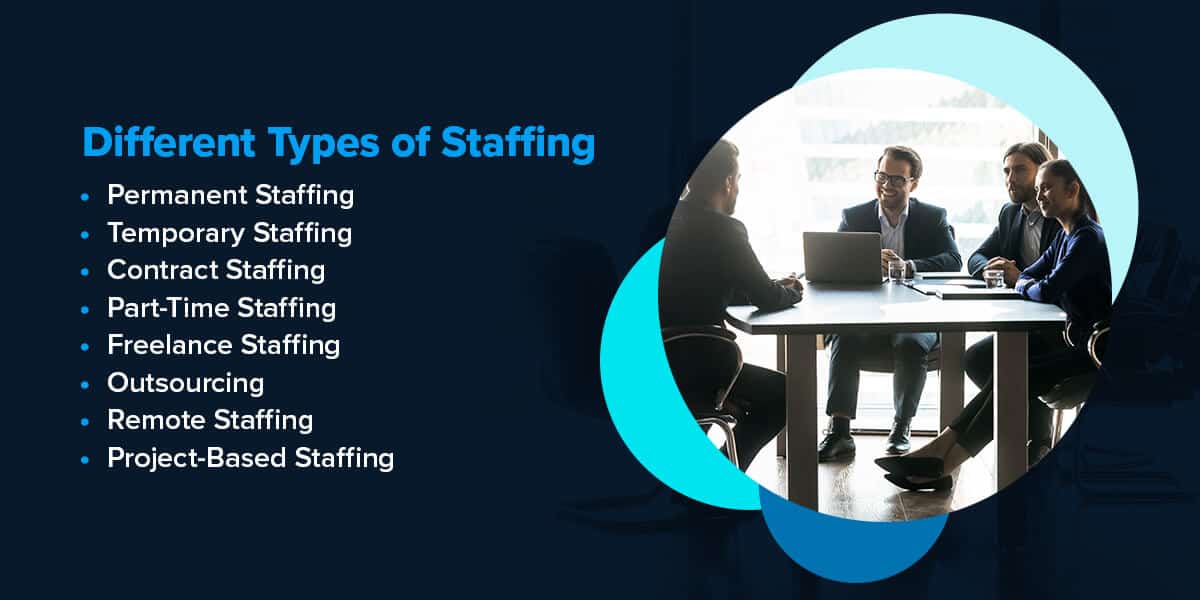견적문의
페이지 정보
작성자 Uta Lapointe 댓글댓글 0건 조회조회 288회 작성일작성일 25-06-07 02:02본문
| 회사명 | PN |
|---|---|
| 담당자명 | Uta Lapointe |
| 전화번호 | EN |
| 휴대전화 | DF |
| 이메일 | utalapointe@yahoo.com |
| 프로젝트유형 | |
|---|---|
| 제작유형 | |
| 제작예산 | |
| 현재사이트 | |
| 참고사이트1 | |
| 참고사이트2 |

✔ Outsourcing payroll might decrease administrative concerns, conserve time, and ensure compliance with tax laws.
✔ Cost savings vary from 18%-35% typically compared to internal payroll processing.
✔ Payroll providers deal with wage estimations, tax filings, direct deposits, advantages reductions, and more.
✔ Businesses of all sizes benefit, especially those without dedicated payroll personnel.
✔ Choosing the right payroll service depends on company size, intricacy, and require for integration with existing systems.
Every other Friday, Lisa braced herself for what had essentially end up being a continuous source of stress: payroll. As the office manager for a growing home services business, she wore numerous hats: scheduling jobs, handling billings, managing HR jobs, and more. Payroll was simply one more obligation on her overflowing plate, and in spite of her best shots, something constantly appeared to go wrong.

Last pay duration, she overlooked overtime for 2 professionals, resulting in a payroll correction that took hours to repair. The month previously, a tax filing deadline slipped through the fractures, leading to a costly late charge. And then there were the continuous concerns from staff members about their paychecks - was my reward included? Why are my reductions different today? Is there still time to correct my punch card? When will I receive my W-2?
Lisa's stress level was through the roof. Something needed to change. Accordingly, Lisa started exploring her alternatives. What if the company had someone else manage payroll? By handing off payroll to an expert supplier, or, at the extremely least, updating their software, she could eliminate the threat of mistakes, make sure compliance with tax laws, and free up hours weekly to concentrate on running business.
Does your payroll journey simulate Lisa's? Is payroll a barrier that looms at the end of every other week? Luckily, you're not alone. In this short article, we'll check out how contracting out payroll works, the benefits it provides, and whether it's the ideal relocation for your organization.
Outsourcing payroll is the practice of handing off payroll-related tasks to a third-party company who focuses on processing incomes, taxes, and other compensation-related duties. Instead of managing payroll by hand - or juggling numerous software application solutions - services can rely on experts to guarantee employees are paid properly and on time while remaining compliant with tax laws.
Payroll suppliers handle a variety of jobs, consisting of:
✅ Processing staff member salaries and specialist payments;
✅ Calculating and filing payroll taxes;
✅ Managing direct deposits and paper checks;
✅ Handling reductions, garnishments, and advantages contributions; and
✅ Keeping up to date with ever-changing labor laws and tax rates.
Approximately 61% of business outsource their payroll procedures. The decision to contract out the entire function or sector out portions, such as tax filings or direct deposit management, largely depends on business size, payroll complexity, and internal resources.
For bigger businesses with staff members across multiple states, payroll outsourcing can simplify compliance with various tax laws and policies. But little and mid-sized services also benefit - especially those without a dedicated payroll expert. Considered that payroll laws frequently alter, outsourcing ensures organizations stay certified without having to constantly keep an eye on updates.
Years back, it was unusual for business to turn over payroll to an outside supplier. But today, advances in payroll innovation make contracting out a cost-efficient and efficient option. Whether you require full-service payroll assistance or simply assist with specific tasks, outsourcing can free up important time, decrease administrative headaches, and give company owner comfort. Statistics back this up. According to a PwC study, companies that outsource their payroll works experience expense decreases of 18%-35%, usually.
Is outsourcing payroll the right choice for your company? In the next area, we'll check out the essential advantages and potential downsides to assist you choose. If not, a finest practice may include upgrading your internal software application. While we're biased, a service like OnTheClock permits you to encapsulate time tracking, scheduling, and payroll in one platform. No more third-party costs, delays, or errors!
Don't let taxes get you down. Make payroll easy with OnTheClock!
Your stress-free option for payroll.

The Benefits of Outsourcing Payroll
Having your personnel complete payroll might look like a cost-savings procedure; however, the truth is that it's frequently lengthy, complex, and prone to costly errors. Outsourcing payroll provides businesses a streamlined, secure, and cost-efficient service. Here's how it can benefit your business:
Save Time and Boost Productivity: Payroll isn't almost transferring revenue - it includes tracking hours, computing taxes, managing benefits reductions, and making sure compliance with ever-changing guidelines. For little companies, this responsibility typically falls on a bachelor or a small HR team, pulling focus far from tactical efforts. Outsourcing payroll gets rid of these lengthy jobs, releasing up your group to focus on development and employee engagement.
Reduce Payroll Costs: Many little and mid-sized businesses discover that contracting out payroll is more economical than keeping an in-house payroll group. The expenditures connected with payroll software, employee training, tax filing, and compliance management can build up rapidly. By contracting out, companies can access professional payroll services at a foreseeable monthly cost - typically less than the expense of hiring a full-time payroll specialist.
Minimize Errors and Ensure Compliance: Payroll mistakes aren't simply discouraging - they can cause considerable punitive damages. From overlooking tax withholdings to missing out on due dates, mistakes can set off audits, fines, and unhappy staff members. Payroll providers concentrate on tax compliance, staying up to date on federal, state, and regional policies to ensure precise filings and timely payments.
Enhance Data Security: Payroll information consists of delicate staff member info, such as Social Security numbers and savings account information. Cybersecurity hazards and internal scams threats make payroll security a leading concern. Professional payroll providers invest in sophisticated file encryption, safe cloud storage, and multifactor authentication to keep your company's monetary data safe.
Avoid Payroll Disruptions: If your internal payroll specialist takes a holiday, gets ill, or leaves the company, payroll operations can be thrown into chaos. Outsourcing supplies continuity and dependability, guaranteeing payroll is processed precisely and on time, every time.
Simplify Direct Deposit and Benefits Integration: Many small businesses battle to set up direct deposit or correctly incorporate payroll with benefits administration. Payroll companies streamline this process, ensuring employees are paid immediately and reductions for benefits like medical insurance and retirement plans are managed correctly.
Scale With Your Business: As your company grows, payroll complexity boosts. More staff members mean more tax commitments, advantage choices, and compliance requirements. A payroll company can scale with your company, adjusting to brand-new challenges without needing you to work with extra HR personnel.
The Downsides of Outsourcing Payroll
While contracting out payroll can save time and reduce administrative concerns, it's not without its challenges. Before dedicating to an external provider, it's important to weigh the prospective downsides and figure out whether the trade-offs align with your business's needs.
Loss of Control Over Payroll Processes: When you outsource payroll, you give up direct oversight of important payroll functions. While automation and dedicated payroll experts can minimize mistakes, you may have restricted exposure into the procedure. If a mistake happens, such as an inaccurate paycheck or a missed tax filing, it might take longer to deal with than if payroll were handled internal. Additionally, you might have to depend on customer support groups with differing levels of responsiveness instead of making immediate modifications yourself.
Data Security Concerns: Outsourcing requires sharing sensitive employee information, consisting of Social Security numbers, incomes, and tax information, with a 3rd party. While most payroll service providers carry out robust security procedures, data breaches remain a threat. Additionally, since you do not control their security procedures, you're relying on their capability to protect worker information. Any lapse in security might lead to identity theft, compliance problems, or monetary losses.
Limited Customization and Flexibility: Payroll service providers usually provide standardized services that may not perfectly align with your company's needs. If your business has special payroll structures, such as specialized perks, commissions, or industry-specific reductions, adapting to a third-party system can be difficult. Furthermore, last-minute payroll adjustments, such as adding an expense reimbursement or correcting a tax code, might not be as seamless as they would be with an internal payroll team.
Potential Hidden Costs: While outsourcing can appear cost-efficient, costs can accumulate beyond the base subscription fee. Some companies charge additional for year-end tax filings, compliance updates, off-cycle payroll runs, or combination with other business software. If your business requires regular payroll modifications or personalized reporting, these extra expenses can quickly go beyond the initial budget plan. Employee Experience Challenges: When payroll is contracted out, workers often have to contact a third-party supplier for payroll-related concerns or problems. This can a disconnect, as employees may have problem with impersonal consumer service, long haul times, or irregular assistance quality. Unlike an in-house payroll team that comprehends business culture and policies, an outsourced provider may not provide the very same level of familiarity or responsiveness.
Dependency on Provider Stability: Counting on an external company for payroll means your business is susceptible to its functional stability. If the service provider experiences financial problem, technical failures, or sudden service disturbances, your payroll process could be affected. In severe cases, a supplier closing down suddenly could result in lost payroll information and significant operational headaches.
The Different Kinds Of Payroll Services
Not all payroll outsourcing services are created equivalent. Businesses have different requirements, and payroll suppliers offer different levels of service to accommodate them. Whether you want to hand off everything or keep some control, there's an outsourcing model that fits your company. Here are the main types of outsourced payroll services:
1. Full-Service Payroll Outsourcing: If you're looking for a completely hands-off method, full-service payroll outsourcing is the way to go. This kind of service provider deals with every element of payroll, consisting of:
- Calculating incomes and reductions;
- Managing tax filings and compliance;
- Administering staff member advantages; and
- Handling direct deposits and paychecks.
With a full-service company, all you require to do is provide staff member information, such as hours worked and wage updates. While this alternative is the most convenient, it also tends to be the most expensive. Plus, services require a reliable system for sharing accurate payroll details on time.
2. Partial Payroll Outsourcing: For companies that choose to maintain some control over payroll however offload complex jobs, partial outsourcing is a fantastic middle ground. Companies might pick to:
- Manage worker time tracking and presence in-house while contracting out tax filing;
- Handle direct deposit themselves but outsource compliance and reporting; and
- Keep payroll processing internal however use an external supplier for year-end tax return.
This model enables business to lower their administrative concern while keeping oversight on crucial payroll functions.
3. Cloud-Based Payroll Services: Cloud-based payroll contracting out deals versatility and real-time access to payroll information. These services:

- Automate payroll computations and tax filings;
- Allow staff members to gain access to pay stubs and tax documents through self-service portals; and
- Integrate with accounting and HR software application.
Since cloud payroll solutions are web-based, organizations can handle payroll from anywhere. This option is perfect for remote groups and growing business that need scalability.
4. International Payroll Outsourcing: For business with a worldwide labor force, worldwide payroll providers streamline the complexities of managing staff members across various countries. These services:
- Ensure compliance with local tax laws and labor policies;
- Handle multi-currency payroll processing; and
- Manage cross-border payroll tax filings.
Outsourcing worldwide payroll can prevent pricey compliance errors while simplifying payments for overseas staff members.
5. DIY Payroll with Provider Support: Some payroll service providers use a hybrid method where businesses handle a lot of payroll jobs but use software application and tools provided by the outsourcing business. This model is perfect for companies that:
- Want to preserve direct control over payroll processing;
- Need automation tools to simplify computations; and
- Prefer expert assistance for compliance concerns.
This method combines the flexibility of in-house payroll with the security of professional guidance.
How to Choose the Proper Payroll Partner
The best payroll service depends on your company's size, structure, and requires. If you want a completely hassle-free experience, full-service outsourcing may be the very best option. If you need flexibility, partial or cloud-based solutions might be a much better fit. Here's a list of steps you need to consider when picking the ideal payroll supplier.
Define Your Payroll Needs: Before comparing providers, overview exactly what you require from a payroll service. Are you looking for full-service payroll that handles everything, or do you choose partial payroll contracting out where you retain control over certain jobs? Consider functions like direct deposit, tax filing, benefits administration, and compliance tracking. If your company runs in numerous locations or utilizes remote workers, you might also require multistate or international payroll capabilities.
Integration with Existing Tools: A seamless payroll process depends upon how well your payroll company integrates with your existing systems. Search for services that get in touch with your scheduling software, HR platforms, and time tracking tools. Proper combination can lower manual data entry, lessen mistakes, and enhance total efficiency.
Compliance and Tax Expertise: Payroll is more than simply paying employees - it includes tax filings, reductions, and compliance with labor laws. A trusted payroll partner need to keep up to date with modifications in tax regulations and guarantee accurate reporting to avoid pricey charges. Ask potential suppliers about their compliance processes and how they manage updates to federal, state, and regional tax laws.
Pricing Structure and Value: Cost is a significant factor when picking a payroll company, however the most inexpensive alternative isn't always the very best. Compare rates designs, as some suppliers charge a flat regular monthly charge, while others costs per pay period or per worker. Many payroll solutions, including OnTheClock Payroll, tend to be around $40 per month and $6 per staff member. Make certain to represent any extra expenses for tax filings, direct deposits, or HR add-ons. The very best payroll partner provides a balance of price and value, saving you time and decreasing payroll-related headaches.
Customer Support and Service Quality: Payroll mistakes can be stressful, so having access to responsive client assistance is vital. Evaluate the supplier's service alternatives: Do they provide live phone assistance, chat, or e-mail assistance? Check online evaluations and testimonials to evaluate their credibility for customer care. A payroll partner with strong support can quickly fix problems and keep payroll running smoothly.
Security and Data Protection: Payroll information includes sensitive worker info, making security a top priority. Ensure your payroll service provider uses strong file encryption, multi-factor authentication, and safe servers to protect against cyber threats. Ask about their information backup policies and how they handle security breaches.
Scalability and Flexibility: Your payroll requirements might progress as your organization grows. Choose a supplier that can scale with you, whether you're adding brand-new employees, broadening to multiple locations, or requiring additional functions like benefits management or time tracking. A flexible payroll partner will accommodate changes without requiring a major overhaul of your payroll procedure.
Service Level Agreements (SLAs): A respectable payroll supplier must provide clear service level contracts (SLAs) that lay out crucial performance expectations, such as payroll accuracy, processing times, and compliance warranties. These agreements assist guarantee accountability and provide a standard for evaluating service quality.
Reputation and Industry Experience: Finally, research the supplier's performance history. Search for customer testimonials, market accreditations, and case studies that show their expertise. If possible, select a payroll partner with experience in your market, as they'll be familiar with sector-specific payroll requirements and compliance difficulties.
Outsourcing Payroll: Common Challenges and Best Practices
Outsourcing payroll can be a game-changer for organizations, decreasing administrative workload, improving precision, and ensuring compliance. However, handing over such an important function comes with its own set of difficulties. If not handled correctly, business can face communication breakdowns, security dangers, and compliance concerns. Below are some typical difficulties businesses experience when contracting out payroll and some actions to help overcome them.
Loss of Control Over Payroll Processes
When you contract out payroll, you give up direct oversight of payroll computations, tax filings, and worker payments. This can cause issues about transparency, accuracy, and responsiveness.
- Choose a service provider that provides real-time reporting and payroll dashboards so you can monitor deals.
- Establish clear expectations from the start, including deadlines, information accuracy standards, and escalation procedures.
- Maintain internal payroll expertise to review reports and guarantee payroll accuracy.
Communication Breakdowns
An absence of correct communication between your company and the payroll supplier can result in errors, delays, and frustration. Misunderstandings about data submissions, reporting requirements, and worker categories can trigger significant disruptions.
- Designate a devoted point of contact on both sides to make sure smooth interaction.
- Set up regular check-ins to evaluate payroll processes, deal with concerns, and offer updates.
- Use cloud-based payroll platforms that allow real-time access to reports and automated notices.
Data Security and Privacy Risks
Payroll data consists of extremely sensitive employee information, including Social Security numbers, bank information, and income records. A security breach can result in identity theft, financial fraud, and legal liabilities.
- Deal with a provider that utilizes sophisticated file encryption, multifactor authentication, and protected information storage.
- Limit access to payroll information by defining user functions and consents within the system.
- Regularly review the company's security policies and require compliance with market requirements like SOC 2 and GDPR.

Compliance and Regulatory Risks
Payroll laws and tax regulations regularly change, and noncompliance can result in hefty fines and charges. If your payroll supplier fails to stay updated, your service might be at danger.
- Partner with a provider that specializes in your market and is well-versed in federal, state, and local tax laws.
- Request regular compliance audits to guarantee payroll tax filings and employee categories are accurate.
- Maintain internal oversight by remaining informed about payroll regulations that affect your service.
Hidden Fees and Unexpected Costs
Some payroll service providers charge additional for services like tax filings, compliance updates, and software upgrades. Without a clear understanding of costs, businesses can deal with spending plan overruns.
- Review the agreement completely before signing and clarify all expenses, including per-payroll costs, year-end reporting charges, and add-on services.
- Choose a service provider with transparent, extensive prices to avoid unanticipated costs.
- Regularly evaluate whether the payroll service is cost-efficient for your company.
Integration Challenges
If your payroll provider's system doesn't integrate smoothly with your existing accounting, HR, or time tracking software application, it can result in inadequacies and manual data entry mistakes.
How to Overcome It
- Select a provider that provides smooth combination with your existing tools, such as QuickBooks or OnTheClock.
- Test the combination before totally transitioning to outsourced payroll to recognize prospective issues.
- Work carefully with your supplier to customize information exports and imports for precision and performance.
Final Thoughts
Lisa's story is all too familiar to numerous entrepreneur and workplace supervisors. Payroll mistakes, compliance concerns, and consistent disturbances can turn payday into a source of tension instead of a basic process. By contracting out payroll, Lisa took control of her time, decreased mistakes, and ensured her team was paid properly and on time.
If payroll has actually ended up being a burden for your organization, it might be time to check out a better option. OnTheClock Payroll simplifies the process, so you can concentrate on running your organization - not worrying over paychecks. Ready to simplify payroll? Try OnTheClock Payroll today and let us manage the heavy lifting so that you can concentrate on what matters most: growing your service!

